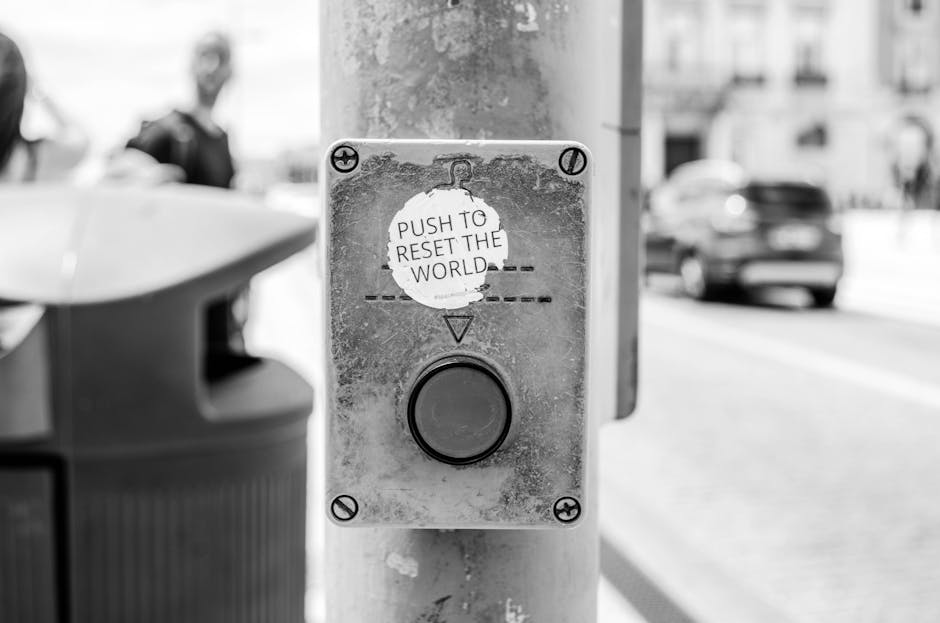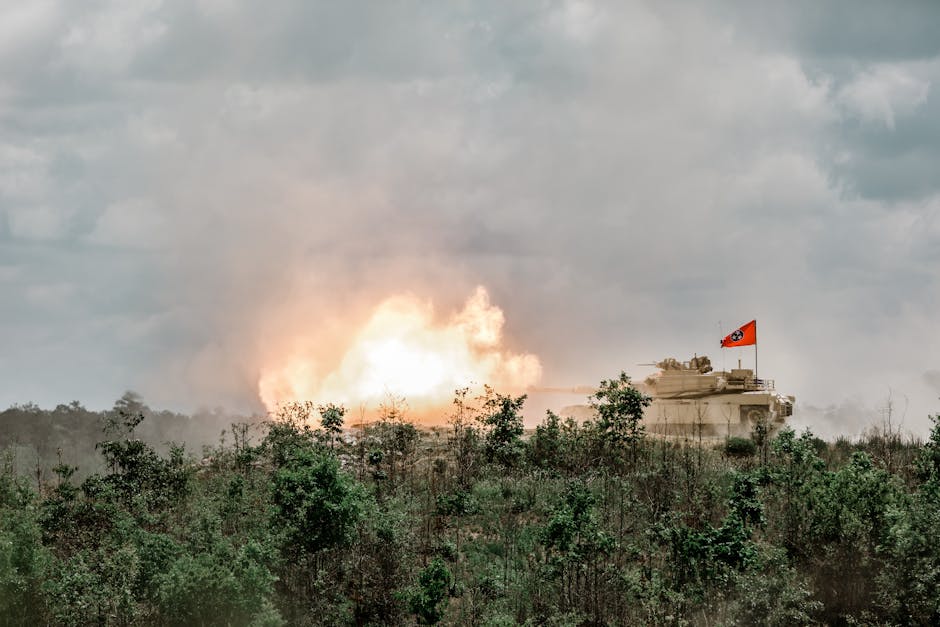-
Agricultural Losses: Plant viruses cause over $30 billion in annual global losses, with pests and diseases destroying nearly 40% of annual crops.
-
Cucumber Mosaic Virus (CMV): CMV infects over 1,200 plant species, causing significant yield losses (e.g., 25-30% in Indian banana plantations, up to 70% in pumpkin/cucumber/melon crops). Spread by aphids.
-
RNA Silencing: Plants naturally use RNA silencing (dsRNA triggers DCL enzymes to produce siRNAs, destroying viral RNA) as a defense against viruses.
-
HIGS vs. SIGS: Host-Induced Gene Silencing (HIGS) involves genetically modifying plants for continuous dsRNA production but faces regulatory and cost hurdles. Spray-Induced Gene Silencing (SIGS) uses RNA sprays, but traditional dsRNA mixes are inefficient.
-
New “Effective dsRNA” Approach: Researchers developed a new approach that enhanced the effectiveness of RNA silencing against CMV.
-
Engineered dsRNA: Genetically engineered dsRNA enriched with highly functional siRNA.
-
Key Advantages: The new approach: (i) precision, directing the plant’s immune system toward the viral particles’ most vulnerable genetic regions, boosting its ability to fight infection. (ii) a stronger defense because the more-effective dsRNA targets multiple regions of the viral genome simultaneously, making it harder for the virus to mutate and escape. (iii) effective dsRNA can be redesigned in about a month to target new viral strains.
-
Promising Results: Demonstrated up to 80% viral load reduction in lab settings using Nicotiana benthamiana. Effective against multiple CMV strains.
-
Future Steps: Developing spray-based solutions and field trials are underway to test effectiveness in natural conditions.
-
Broader Applications: The technology could be adapted for other plant viruses, fungal and bacterial diseases, and insect pests.
-
Challenges: RNA stability in outdoor conditions (sunlight, rain), cost and scalability of production, and regulatory approvals.
Current Affairs
WTO: Reboot
- WTO’s Diminished Relevance: Rising protectionism, paralyzed dispute settlement, proliferation of FTAs challenge WTO’s role.
- Dispute Settlement Crisis: The Appellate Body is non-functional due to blocked appointments by the US since 2019, weakening enforcement.
- Negotiation Stalemate: Doha Round failed due to disagreements on agriculture, market access, subsidies.
- MFN Erosion: FTAs bypass MFN obligations, fragmenting trade rules, and undermining the multilateral vision.
- Rise of Protectionism: Trade wars, unilateral tariffs using “national security” exceptions weaken WTO principles.
- Inability to Address New Issues: WTO lacks rules for the digital economy, e-commerce, and climate-related trade.
- Power Imbalance: Developed countries push reforms, while developing countries resist, fearing loss of development space.
- Geopolitical Tensions: US-China rivalry, Russia-Ukraine war, and strategic blocs reduce cooperation within the WTO.
- Developing Country Status Disputes: Disagreement over benefits for large economies like China.
- India’s Concerns: MSP exceeding subsidy caps and reluctance to negotiate labor/environmental standards.
- WTO’s Significance: Despite challenges, it facilitated trade growth, reduced poverty, and provided a platform for the Global South.
- Revival Measures: Equitable globalization, enforceable digital trade rules, restoring dispute settlement, redefining SDT based on dynamic criteria, trade-climate linkages, and a permanent reform council.
- Loss of Compass: WTO is not performing negotiating, dispute settlement, or trade monitoring functions, according to some experts.
- US Distrust: The US believes it lowered tariffs too much compared to other countries and feels MFN has not worked.
- China Challenge: WTO rules were inadequate to address China’s dominance and trade practices.
Balikatan 2025
-
Largest Bilateral Exercise: Balikatan is the largest military exercise between the Armed Forces of the Philippines (AFP) and the United States military. Why: Highlights the scale and importance of the cooperation.
-
Deterrence Focus: Exercise simulates a “full-scale battle scenario,” aimed at deterring potential aggression in the region, implied to be China. Why: Indicates the strategic purpose of the exercise and its geopolitical context.
-
Mutual Defense Treaty Support: Balikatan is designed to enhance military interoperability and readiness in support of the Mutual Defense Treaty between the US and the Philippines. Why: Reinforces the legal and strategic basis for the exercise.
-
40th Iteration: The 2025 exercise marks the 40th year of Balikatan. Why: Emphasizes the long-standing nature of the partnership.
-
Full Battle Test (FBT): Balikatan 2025 introduces a Full Battle Test, incorporating real-world forces and events into a virtual scenario. Why: Shows a significant upgrade in the complexity and realism of the exercise.
-
Multi-Domain Operations: The exercise spans all domains: air, land, sea, space, and cyber, testing interoperability in defending Philippine sovereignty. Why: Highlights the comprehensive nature of the training, covering modern warfare aspects.
-
Four Primary Components:
- Combined Joint Logistics Over-the-Shore (CJLOTS)
- Humanitarian Civic Assistance (HCA)
- Command-and-Control Exercise (C2X)
- Multilateral Maritime Exercise (MME)
Why: Details the specific areas of training and cooperation, showcasing a diverse set of capabilities.
India’s ECS Claim
-
Modified ECS Claim: India has submitted a revised claim to the UN Commission on the Limits of the Continental Shelf (CLCS) to extend its Extended Continental Shelf in the Central Arabian Sea by nearly 10,000 sq km.
-
Avoiding Dispute: The move aims to avoid a maritime dispute with Pakistan over the Sir Creek area while securing valuable seabed resources.
-
What is ECS: Extended Continental Shelf (ECS) extends beyond a coastal State’s territorial sea, either up to the natural edge of the continental margin or up to 200 nautical miles from its baselines, whichever is farther.
-
Initial Claim & Objections: India’s initial claim (2009) faced objections from Pakistan (2021) due to overlaps near the disputed Sir Creek area. The CLCS rejected India’s claim in the Arabian Sea in 2023, allowing resubmission.
-
Strategic Splitting: India split its original claim into two parts to ensure that its claim in the Central Arabian Sea region isn’t affected.
-
Resource Security: Securing the ECS is critical for accessing minerals, polymetallic nodules, and oil reserves to support India’s economic interests.
-
Strategic Control: With the ECS, India’s seabed area would nearly equal its land area, reinforcing maritime sovereignty and regional influence.
-
UNCLOS Framework: The claim is made under the United Nations Convention on the Law of the Sea (UNCLOS), with CLCS recommendations expected in August 2025.
-
Other Overlaps: Some parts of India’s continental shelf claims in the Arabian Sea overlap with that of Oman. However the two countries have an agreement in place since 2010 that while the continental shelf between them is yet to be delimited, it is ‘not under dispute.’
UDAN: Fly High!
- UDAN Scheme Anniversary: Celebrated its 8th anniversary (April 27, 2025), highlighting its role in affordable air travel. Launched on October 21, 2016, with the first flight on April 27, 2017 (Shimla-Delhi).
- Objective: Democratize aviation, enhance regional connectivity, and connect Tier-2 and Tier-3 cities. Aims to make air travel accessible to the common man.
- Key Features: Viability Gap Funding (VGF), airfare caps, reduced taxes on Aviation Turbine Fuel (ATF), and collaborative governance. ₹4,023.37 crore disbursed as VGF.
- Implementation: Designed under the National Civil Aviation Policy (NCAP) 2016. Airports Authority of India (AAI) is the nodal agency.
- Significant Milestones: 625 routes operationalized, connecting 90 airports (including 2 water aerodromes, and 15 heliports). Airport network expanded from 74 (2014) to 159 (2024). More than 1.49 crore passengers benefited.
- Key Innovations:
- UDAN Yatri Cafes: Affordable food options at airports.
- Seaplane Operations: Focus on connecting water bodies; UDAN Round 5.5 launched. Guidelines released in August 2024 focusing on safety and operational viability.
- Krishi UDAN Scheme: Supports farmers with air logistics for agri-produce. Covers 58 airports.
- Future Plans: Revamped UDAN aims to add 120 new destinations and enable affordable air travel for 4 crore more passengers over the next decade. Focus on remote, hilly, and aspirational districts. Plan to develop 50 new airports in the next 5 years.
- Impact: Strengthened regional tourism, healthcare access, and trade. Catalyzing economic growth in Tier-2 and Tier-3 cities.
Report Submission Delays
-
Delays in Report Submission: Annual reports from the National Commissions for SCs, STs, and OBCs are significantly delayed, with some pending for up to seven years.
-
Constitutional Mandate Violated: Articles 338, 338A, and 338B mandate these commissions to submit annual reports to the President, reviewing safeguards and recommending measures for marginalized communities.
-
Accountability Concerns: Untabled reports in Parliament raise concerns about government accountability and timely implementation of welfare measures.
-
Policy Influence Impaired: Delays hinder the commissions’ ability to influence policy decisions related to reservations, creamy-layer criteria, and welfare interventions.
-
Resource Constraints: Commissions face resource limitations and a lack of experts, slowing down report compilation and review.
-
Ministry Prioritization Issues: Nodal ministries may not prioritize the tabling of these reports, causing further delays.
-
Outdated Methodologies: Reliance on manual data collection methods and limited integration of digital data hinders efficiency.
-
Lack of Clear Deadlines: Absence of fixed deadlines for additional reports contributes to delays.
-
Loss of Faith: Outdated reports undermine the relevance of the commissions, causing marginalized communities to lose faith.
-
Emerging Issues Unaddressed: New forms of discrimination and economic exclusion may remain unaddressed due to delays.
-
Inadequate Pressure: Limited public and parliamentary pressure allows delays to persist without consequences.
-
Impact on Welfare Schemes: Delays disrupt the timely influence of report recommendations on government policies.
Critical Tiger Habitat
- Sariska Tiger Reserve (STR) CTH Expansion: STR’s Critical Tiger Habitat (CTH) is set to expand by approximately 4,500 hectares.
- Rationalization Exercise: This expansion follows a rationalization exercise mandated by the Supreme Court’s Central Empowered Committee (CEC).
- Breeding and Movement Patterns: The expansion and rationalization were based on tiger breeding patterns and movement behavior at STR. Areas lacking tiger activity are proposed for removal, while zones with consistent activity will be included.
- Legal and Management Challenges: The fragmented nature of the existing CTH created legal and management challenges.
- Expert Committee: A committee of experts was constituted under the Wildlife (Protection) Act, 1972, to conduct a scientific study.
- Land Parcel Adjustments: Land parcels disconnected from the core area and lacking tiger presence would be excluded. Land from buffer areas with regular tiger movement would be incorporated.
- Area Specifics: Land near Tehla, Siliberi Da Gate, Bansur, and the Jaipur Wildlife boundary may be removed. The buffer area adjoining Alwar city is proposed to be added, excluding portions near the urban area.
- Approvals Needed: The draft requires approvals from the State Board for Wildlife (SBWL) and National Board for Wildlife (NBWL) before being sent to the CEC.
- Eco-Sensitive Zone (ESZ) Notification: The notification of STR’s Eco-Sensitive Zone (ESZ) is scheduled after the CTH rationalization. State govt has sought an extension to complete this process, and the ESZ notification was expected before Dec 31, 2025.
- CTH Definition: Critical Tiger Habitats (CTH) are core areas of tiger reserves, identified under the Wild Life Protection Act (WLPA), 1972, to be kept inviolate for tiger conservation without affecting the rights of Scheduled Tribes or forest dwellers.
- Inviolate Status: CTHs are kept free from human activities for tiger conservation. Forests surrounding CTHs are designated as buffer areas.
- Central Empowered Committee (CEC): Established in 2002, now a permanent statutory body under the Ministry of Environment, Forest, and Climate Change. It monitors environmental compliance, provides expert recommendations, investigates complaints, conducts site visits, and reports to authorities. NGOs were previously part of the committee.
MacGregor Medal
- Award Ceremony: Five military personnel were awarded the MacGregor Memorial Medal by the Chief of Defence Staff for exceptional contributions to military reconnaissance, exploration, and adventure in 2023 and 2024.
- 2023 Recipients: Wing Commander D. Panda (Air Force) and Electrical Artificer (Radio) Rahul Kumar Pandey (Navy).
- 2024 Recipients: Chief Electrical Aircraft Artificer (Radio) Ram Ratan Jat (Navy), Sergeant Jhumar Ram Poonia (Air Force), and Colonel Ranvir Singh Jamwal (Director of the National Institute of Mountaineering and Adventure Sports, Arunachal Pradesh), though he wasn’t present due to a mountaineering expedition.
- Historical Significance: The medal was instituted on July 3, 1888, in honor of Major General Sir Charles Metcalfe MacGregor, founder of the United Service Institution of India (USI).
- Evolution of Scope: Initially for military reconnaissance and exploration, its scope expanded post-1986 to encompass adventure activities.
- Eligibility: Open to all ranks (serving and retired) of the Armed Forces, Territorial Army, Reserve Forces, Rashtriya Rifles, and Assam Rifles.
- Past Awardees: Notable past recipients include Captain F.E. Younghusband, Major General Orde Charles Wingate, Col. Narinder Kumar, and Cdr Dilip Donde.
- Total Awards: To date, 127 medals have been awarded.
- Book Launch: The event also marked the launch of “Bravest of the Brave,” a biography of Naib Subedar Chunni Lal, authored by Lt. Gen. Satish Dua (retd.).
Cucumber Mosaic Virus
- New Antiviral Agent: Researchers have developed an RNA-based antiviral agent providing strong protection against Cucumber Mosaic Virus (CMV).
- CMV Impact: CMV infects over 1,200 plant species, including vital crops, causing significant yield losses (e.g., 25-30% in Indian banana plantations, up to 70% in cucurbits). It leads to mosaic discoloration, stunted growth, and unmarketable fruits.
- RNA Silencing: The antiviral agent uses RNA silencing, enhancing the plant’s natural defense by employing “effective dsRNA” enriched with potent siRNAs.
- How it Works: Effective dsRNA are genetically engineered dsRNA enriched with highly functional siRNA. These specially selected siRNA bind to the virus’s genetic material to trigger a stronger antiviral response.
- Improved Efficacy: This method, tested on Nicotiana benthamiana, reduced viral load by nearly 80% and outperformed traditional dsRNA due to efficient processing into active siRNA, thus triggering a stronger immune response.
- Advantages: Precise targeting, stronger defense against viral mutations, and rapid redesign for new strains.
- Next Steps: Development of spray-based solutions for field trials.
- Broader Applications: The technology’s principles can be applied to other plant viruses, fungal, and bacterial diseases and insect pests.
- Challenges: RNA stability in outdoor conditions, cost, scalability, and regulatory approvals remain hurdles.
- Economic Impact: Plant viruses contribute to over $30 billion in crop losses annually.
Cholistan
-
Cholistan Canal Project Halted: Pakistan’s government suspended the Cholistan Canal project, part of the Green Pakistan Initiative (GPI), after widespread protests in Sindh.
-
Green Pakistan Initiative (GPI): Aims to modernize Pakistan’s agriculture through irrigation, technology, and increased productivity. The Cholistan Canal was a major component to irrigate 1.2 million acres in the Cholistan Desert.
-
Cholistan Desert Overview: Located in southern Punjab, part of the Greater Thar Desert. Historically a caravan trade center, now characterized by arid conditions and limited water resources.
-
Sindh’s Concerns: Sindh fears the canals will worsen water scarcity. The province is a lower riparian and relies on the Indus River system. Concerns that federal government prioritizes Cholistan cultivation, at the cost of Sindh’s land, seawater intrusion and decimation of fragile eco-systems.
-
Historical Punjab-Sindh Tensions: The project ignited anti-Punjab sentiment in Sindh, fueled by historical grievances of marginalization.
-
PPP’s Dilemma: The Pakistan Peoples Party (PPP), in power in Sindh, initially endorsed the GPI, causing backlash in Sindh and creating rifts with PML-N. PPP made a u-turn after Sindh protests.
-
Project Rationale: The Cholistan Canal, estimated to cost $800 million, was intended to transform the water-scarce Cholistan region by providing reliable water supply.
-
Water Source Controversy: Questions arose about the canal’s water source, initially intended to be floodwater from the Sutlej River. Sindh believes the project will utilize water from Indus river which is already scarce.








